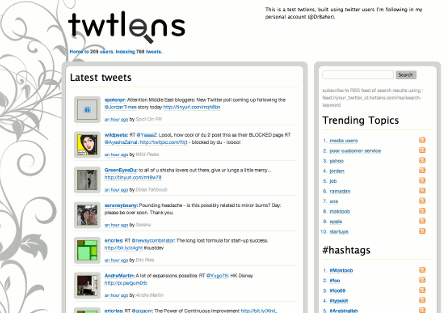After months of rumors and speculation by many in the Arab internet industry, today the news is confirmed and made public officially: Yahoo! is acquiring Maktoob.com, making its big step into the Arab world by acquiring the biggest online Arab community.
A press conference was held at the Fairmont Hotel in Dubai to announce the deal with top executives from Maktoob and the Yahoo! Emerging Markets team.
The deal only involves the Maktoob.com portal and its sub-divisions (including Maktoob Research, Bentelhalal and others), that will become a wholly-owned subsidiary of Yahoo!.
The other sister companies within the Maktoob Group which are: Souq.com, CashU, Tahadi, Araby and the newly acquired E-marketing MENA (which will be rebranded to Ikoo) are not part of the deal, and they will go on with business as usual under the group’s umbrella.
Following this deal, the group will be rebranding to Jabbar Internet Group (JIG), injected with a $20 million investment, and chaired by Samih Toukan.
The first steps after the deal closing in Q4, will be to work on introducing the Yahoo! Maktoob Arabic homepage, as well as Mail and Instant Messenger in Arabic; then to keep moving on to providing other Yahoo! services in Arabic, and enriching Arabic content online. Other local services for the region will also be considered and developed.
The financial details of the deal have not been made public, although many numbers have been floating around the internet over the past weeks and months, none of which have been confirmed by either companies.
This is the first time in the history of the internet in the Arab world that such a deal has taken place, and promises to take the internet industry in the region to a whole new level; hopefully in terms of quality, content, competition, awareness and investment opportunities.
When looking at other global players, Google chose to open small presences of its own, mainly in the UAE and Egypt, to work on some product concept development, marketing and sales in the region. Microsoft already have a wide existence in the Arab world, but mainly around their big software titles, only recently starting to look online in the Arab world.
Hopefully this deal, as well as Google and Microsoft’s moves in the region, will open the door for more international players to start seriously considering entering the online market in the Arab world, but even more importantly will show local investors the potential that exists in investing in sound internet startup ideas, and that with the region as an important emerging market, there are more exit strategies than they initially thought.
For more information on this, you can check out the story and the press release on Maktoob Business.
[Full Disclosure: I have been a Director of a Maktoob.com division ever since the beginning of 2009, and therefore haven’t been able to report on this story any earlier.]



















